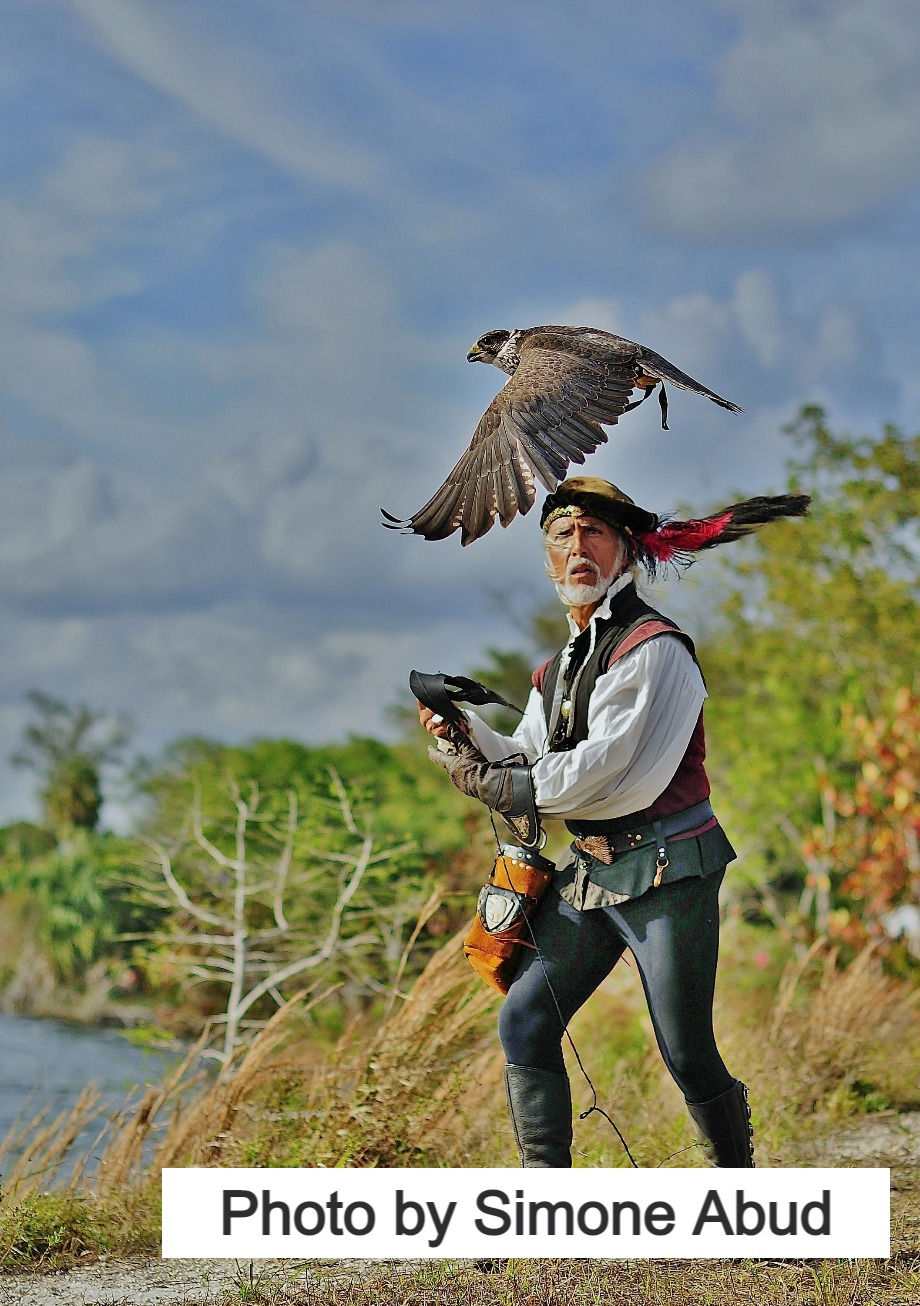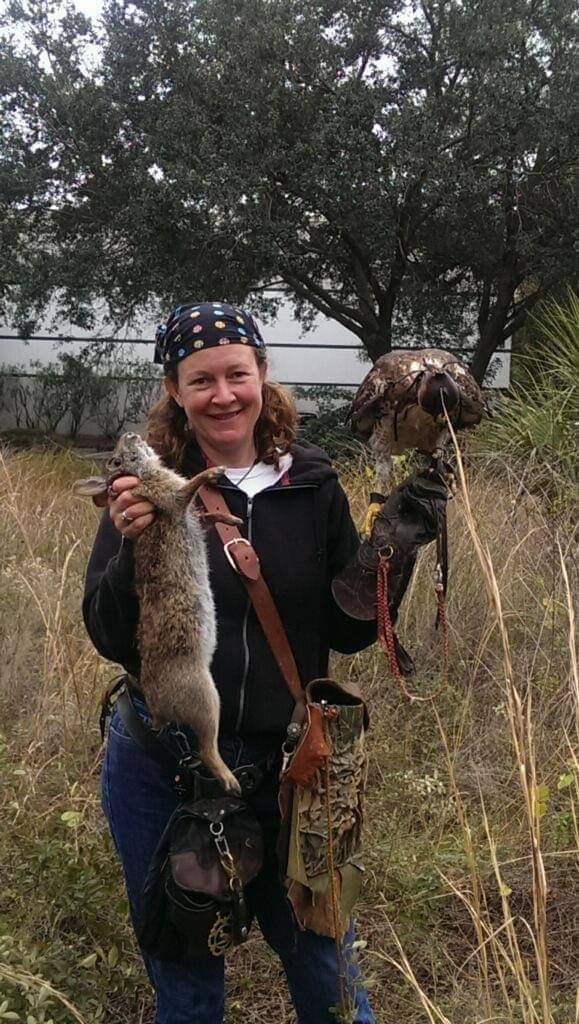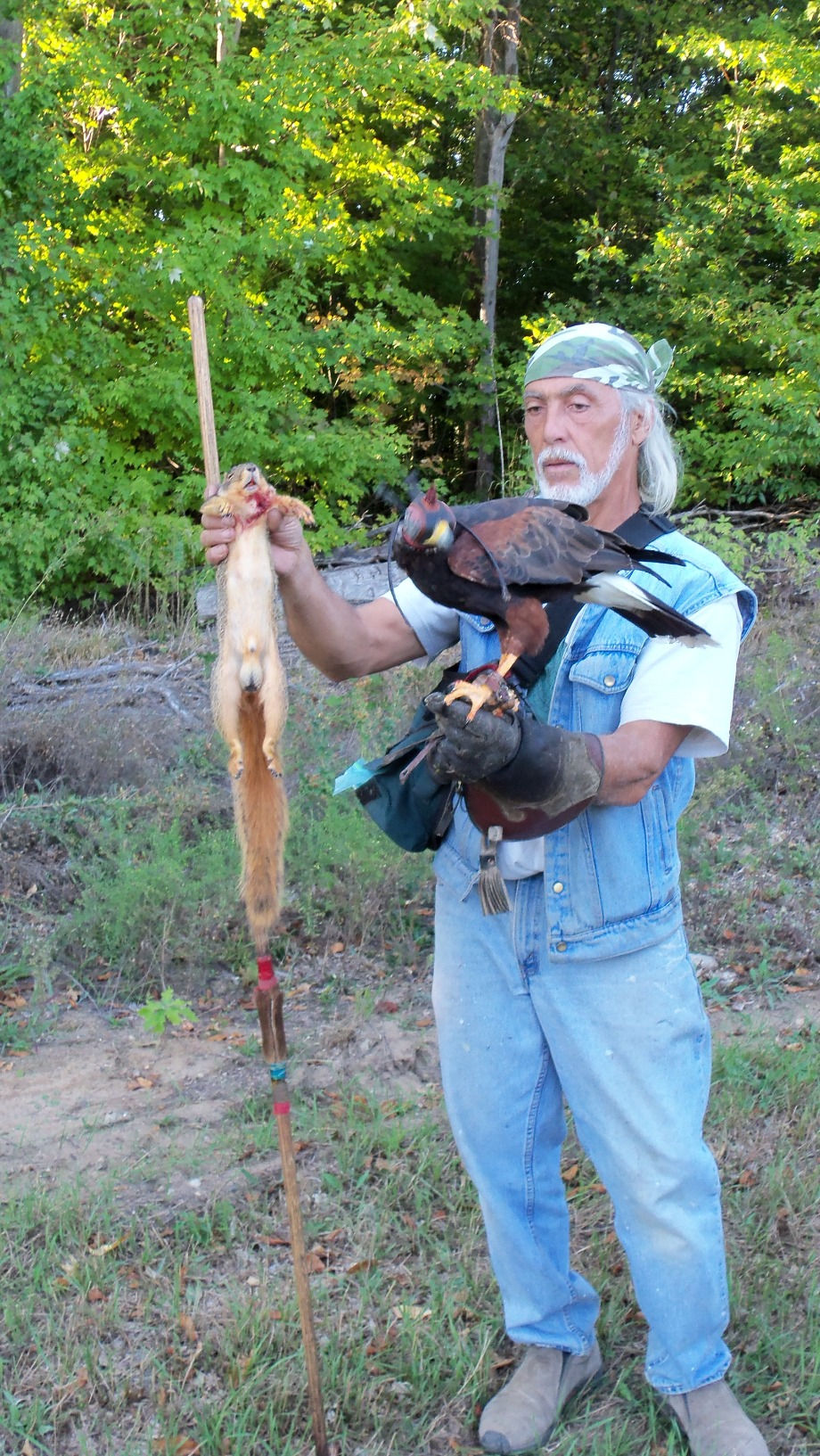Do you want to be a falconer? But SHOULD you become a falconer?
- Sharron Montgomery Pena
- Jan 18, 2021
- 6 min read

It is inevitable that someone always comes up to one of us after the show asking how they can become a falconer. Unless they have an infinite amount of patience to wait out the adoring horde of Ray Pena fans vying for his attention, it has become a question I have been answering pretty often. My answer may however not always be the answer that person expects.
Don’t you hate people who answer a question with another question? I do, but I have learned it can be a useful tool in helping someone to probe for the answer. My question, why do you think you want to be a falconer? Usually there is a pause and then something like, “I have always loved birds of prey since I was a kid.” Sometimes it's something like “I want to have an owl.” And then there is the ever popular “The hawk is my spirit animal.” I do not make light of anyone’s spiritual beliefs, on the contrary, you might be surprised to learn that I consider the bear my spirit animal. I would like to point out however that I am not, nor have I ever considered how to have my own bear or become a bear keeper. It’s not practical for my lifestyle, so I’ll stick to my yearly visits with my good friend Josh, a rescue bear that lives at one of my favorite places, Flamingo Gardens. By now, I think you know where I am going with this.

Likewise, I want to be clear about our program. Our shows and demonstrations are about the importance of birds of prey throughout history as well as their ecological role in our modern environment. We use falconry techniques to demonstrate the flight and give general information about falconry at our shows, but flying the birds at a public program is not falconry. It is education. Our shows are not intended to cheapen or misrepresent the practice, but rather to introduce it within the context of either a renaissance festival or educational setting. Some falconers prefer that falconry be kept within the circle of only those who practice, and not be made accessible to the masses. We respect their opinions, but believe that the history of falconry is an interesting topic for many and can be presented in such a way that both honors the tradition and debunks animal rights type criticism that it is a bloodsport and inhumane by nature.
Becoming a falconer is a tremendous responsibility. It is a commitment of time and space to earn the trust of a wild creature and eventually become partners in the hunt. So first and foremost, you MUST have enthusiasm for the hunt to become a falconer. Period. The very definition of falconry is hunting with a bird of prey.

Historically speaking, before gunpowder, people experimented with a multitude of tools and methods to hunt. Bows and arrows, spears, snares, and other trapping devices were used, as well as hunting on horseback and using dogs to find and chase prey. Birds of prey were, at that time viewed as another tool, although exotic and beautiful, they were hunting partners. The advent of gunpowder eliminated the need for such rudimentary hunting techniques to the extent that people turned their guns on the very creatures who had been their partners and faithful companions in the field. Birds of prey were shot by the greedy hunters that refused to share their quarry as well as those who shot them for sport seeing no other need for them.
So the first advice that Ray often has for the enthusiastic would be falconers is that one must always consider the prey that is available in your area. Have you seen an abundance of rabbits? Squirrels? Starlings? Sparrows? These are the common prey animals that many falconers find abundant and legal to hunt. Other gamebirds and waterfowl (as well as some of the previously mentioned animals) are subject to season and special permit (duck stamps). Equally important, you must consider how watching your bird kill its prey will affect you and whether or not you are prepared to assist your bird with the kill should something go wrong. These initial questions will often separate those who just love the birds and want that intimate experience of handling birds of prey. Not everyone is cut out to watch or participate in the kill.

As luck would have it, those individuals have many options. There are certainly many birds of prey permanently housed in nature centers that are unable to be released into the wild. With the proper amount of volunteer hours and demonstrated responsibility, many of these centers allow dedicated individuals to handle some of their birds to help educate the public. There are also a few falconry schools operating in the U.S. where individuals can spend a day or couple of days learning to handle or fly birds. The cost is usually significant and it doesn’t count towards becoming a falconer, it is simply an experience.
Now if you’ve made it this far and you still want to be a falconer, I always encourage people to do your research and locate your closest falconry group. They will often have falconry meets or social events (check for covid changes) where the members gather with their birds to share fellowship and join each other on hunts. This is the best possible opportunity for newbies to experience what real falconry is all about before they make that commitment. There’s only so much you can get from browsing the web or from books. In this particular situation, real life experience is vital to the decision to become a falconer.

Which brings me to the responsibility portion of your assessment of whether or not falconry is for you. Are you the type of person who has owned many different types of pets in your lifetime? Do you feel that you are at a point in your life where you have a lot of free time to spend with a new bird? Are you able to be objective about your own personality?
These are all factors that I personally believe can affect your ability to be a responsible falconer. Having a parrot, hedgehog, or even horses does not mean that you will automatically excel as a falconer. Having lots of time on your hand does not guarantee it either. For example an important part of falconry is weight management which entails figuring out the ideal weight of your bird for the proper response, whether it is encouraging your bird to jump or fly to your hand or having it ready and eager to go after squirrels or starlings in the field. This is a critical skill to develop in becoming a successful falconer. It also poses the greatest danger to the well being of the bird. Starving a bird into submission can ultimately result in death. Overfeeding a bird can result in an ill mannered and non responsive hunting partner. It is a delicate balance that cannot ever be overstated. This is why having an experienced falconer as a mentor and guide is a vital element to becoming a falconer. I encourage all novices to be as selective with their teacher because the success and life of your bird could depend on it.
Becoming a falconer is a serious commitment, but one that can prove to be immensely rewarding given the proper training and knowledge. A website I often recommend to people interested in falconry is “the modern apprentice.” They have detailed information for beginners as well as several links to point you in the direction of how to get your falconry permit. They are regulated individually by state, so everyone’s process will be different according to where they live. It is universally expected that the beginner will spend two years as an apprentice under a licensed falconer. Other specifics should be found on the individual state websites. The North American Falconers Association (NAFA) is another great resource.
Flight of the Raptor acknowledges and appreciates all of those falconers out there keeping the tradition alive in our challenging human environment . We hope that we have given the prospective new falconer some important issues to consider before embarking on the falconry journey. Take some time and get to know these magnificent creatures before taking on the enormous responsibility of keeping one as a falconer. It can make your journey successful and your bird’s journey as well.

A great post! Explained so well. All those factors, and few more made all the difference between following the path of the feather and not my brother, despite his memorised knowledge, there's so much more. Thank-you for posting this, and I think of that very first time, so many years ago, when Ray slid that glove on my hand at TY Park, and placed that first bird upon it, and my journey began.
Very well written and in the correct context. Thank you for putting falconry vs flight demonstrations in the proper perspective.
So thought-provoking and informative. It should be required reading for anyone thinking of becoming a falconer. Nice work, Sharron!
Amazing information. As I’m sitting here feeling sorry for bunny and squirrel, I will never be a Falconer, lol! But it’s amazing to watch you two do it!